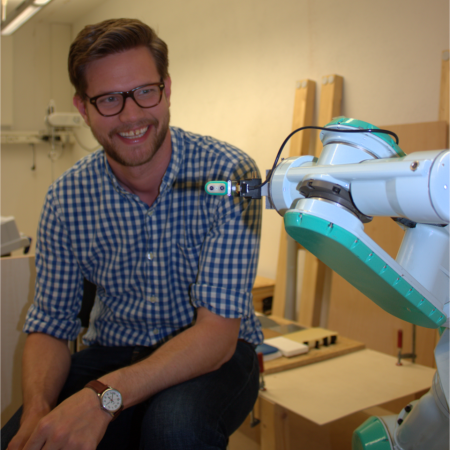
3:00 pm to 4:00 pm
Gates Hillman Center 6115
Abstract: Multi-fingered hands offer autonomous robots increased dexterity, versatility, and stability over simple two-fingered grippers. Naturally, this increased ability comes with increased complexity in planning and executing manipulation actions. As such, I propose combining model-based planning with learned components to improve over purely data-driven or purely-model based approaches to manipulation. This talk examines multi-fingered autonomous manipulation when the robot has only partial knowledge of the object of interest. I will first present results on planning multi-fingered grasps for novel objects using a learned neural network. I will then present our approach to planning in-hand manipulation tasks when dynamic properties of objects are not known. I will conclude with a discussion of our ongoing and future research to further unify these two approaches.
Bio: Tucker Hermans is an assistant professor in the School of Computing at the University of Utah, where he is a founding member of the University of Utah Robotics Center. He was a visiting professor at NVIDIA Research during summer 2019. Professor Hermans is a recipient of the NSF CAREER award and the 3M Non-Tenured Faculty Award. His research has been nominated for multiple conference paper awards including winning the Best Medical Robotics Paper Award at ICRA 2017. Previously, Professor Hermans was a postdoctoral at TU Darmstadt working with Jan Peters. He was at Georgia Tech from 2009 to 2014 in the School of Interactive Computing where he earned his Ph.D. in Robotics under the supervision of Aaron Bobick and Jim Rehg. At Georgia Tech he earned his M.Sc. in Computer Science He earned his A.B. in German and Computer Science from Bowdoin College in 2009.
Host: Oliver Kroemer
For Appointments: Stephanie Matvey (smatvey@andrew.cmu.edu)
PLEASE NOTE EARLIER START TIME
